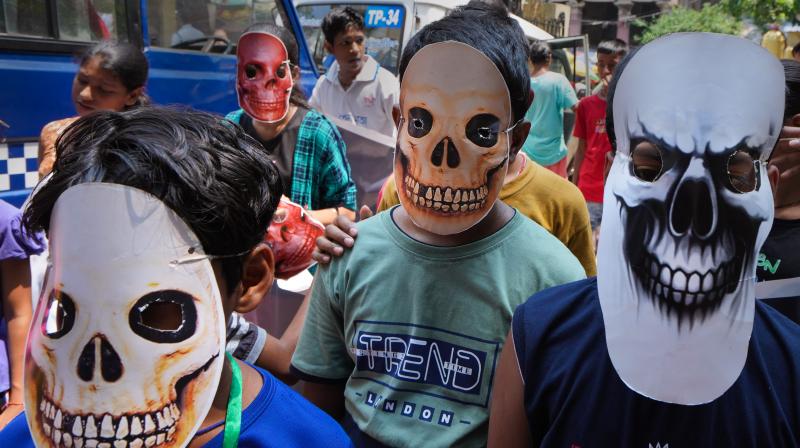Tobacco and Cancer An Oncologist's Perspective

CANCER is the second leading cause of death in the world next to cardiovascular diseases. Tobacco is one of the strongest causes for both cardiovascular diseases and cancer. Tobacco epidemic is one of the biggest health threats the world has ever faced. All forms of tobacco are harmful and there is no safe level of exposure to tobacco.
Tobacco is one of the most important risk factors for cancer. Chewing and smoking are the two main forms of tobacco consumption. One of the most significant health risks associated with tobacco use is the development of cancer. Lung cancer is the most commonly known tobacco-related cancer, but it is not the only one. Tobacco use is linked to cancers of the mouth, throat, larynx, oesophagus, stomach, pancreas, liver, bladder, kidney, colon and rectum, and even blood cancer leukaemia.
Being an oncologist surgeon for the past ten years and having treated and performed many cancer surgeries, one thing which I strongly feel is, I am treating the effect, but not the cause. And the cause is tobacco usage. I am very much successful in treating patients but at times I feel Tobacco wins over me, seeing the mortality because of the advanced stage of cancer. I see many patients quit tobacco at the time of cancer surgeries and after surgery, when they get free of the cancer symptoms, they resume tobacco leading to recurrence and mortality. At one end Cancer research is moving at a fast pace making the incurable cancers curable and at the other end tobacco consumption is increasing the burden of cancer.
TOBACCO & ADDICTION
We as doctors take treatment time as a TEACHABLE MOMENT to make the patients quit tobacco and some of the patients get successful in quitting and some resume tobacco because of addiction. People consume tobacco as it gives them reward or gives them a high (sense of euphoria), and sometimes bowel habits are linked to tobacco consumption. They feel the urge to pass stools only after taking a puff of cigarette or chew gutkha. This leads to addiction!
Nicotine is the substance which causes tobacco addiction. The primary driver of smoking behaviour is nicotine. Tobacco contains nicotine and many other carcinogens .According to IARC (International Agency for Research on Cancer) there are 72 carcinogens in cigarette smoke. Each puff of a smoke contains many carcinogens which directly lead to cancer by causing DNA mutations. Smokers tend to consume a relatively stable number of cigarettes per day and to smoke those cigarettes in a relatively consistent manner in order to maintain an acceptable level of nicotine in their system across the day. Number of cigarettes smoked per day and the smoking pattern of the individual may be influenced by the rate of nicotine metabolism. There are people who metabolise nicotine in a fast manner called fast metabolizers. As a result of which they smoke more cigarettes to maintain sufficient levels of nicotine in the blood. N-nitrosamines, benzene,1,3-butadiene, aromatic amines, cadmium, polycyclic aromatic hydrocarbons, benzo a pyrene are some of the chemical compounds in the tobacco smoke which are carcinogenic. They lead to cancer by causing DNA Mutations.
ACTIVE SMOKERS vs. PASSIVE SMOKERS!
I commonly see in day to day practice that cancer patients have the habit or addiction of smoking and is strongly the reason behind the cancer. It is called first hand smoking. More than 8 million people get killed per year due to first hand smoking. I also get to see patients affected with cancer but there is no history of smoking per se but when I enquire about a spouse/family member's smoking history, the spouse/family member is a chronic smoker. It is called second hand smoking or passive smoking. It is said that around 1.2 million deaths are attributed to secondhand smoking. Nearly half of all children breathe air polluted by tobacco smoke and 65000 children die each year due to illnesses related to second-hand smoke.
QUIT TOBACCO TODAY!
Between 30-50% of cancer deaths could be prevented by modifying or avoiding key risk factors and implementing existing evidence based prevention strategies. Avoiding and quitting tobacco is one of the most important factors in the prevention of cancer. Consulting cancer specialists or psychiatrists will give a plan and schedule how to quit tobacco in people who have addiction because sudden stoppage of tobacco leads to withdrawal symptoms and thereby leading to relapse. Nicotine replacement therapy in the form of nicotine patches, gums and also using drugs to tackle the withdrawal symptoms is the most commonly used method in addition to counselling
31st may every year is observed as world no tobacco day. This is to raise awareness about the consequences of tobacco farming and its consumption. This year's theme is ''we want food, not tobacco''. It raises awareness about alternative crop production and marketing opportunities for tobacco farmers and provides encouragement to grow sustainable, nutritious crops.
The article is authires by Dr Ramakrishna Prasad.CH, consultant surgical Oncologist, Star Hospitals, Hyderabad.

